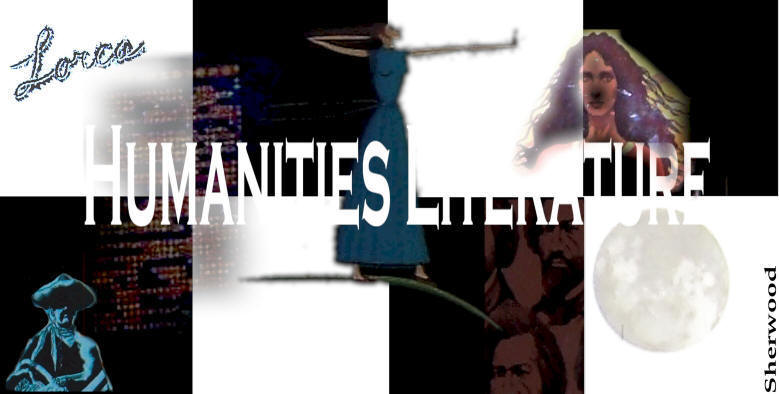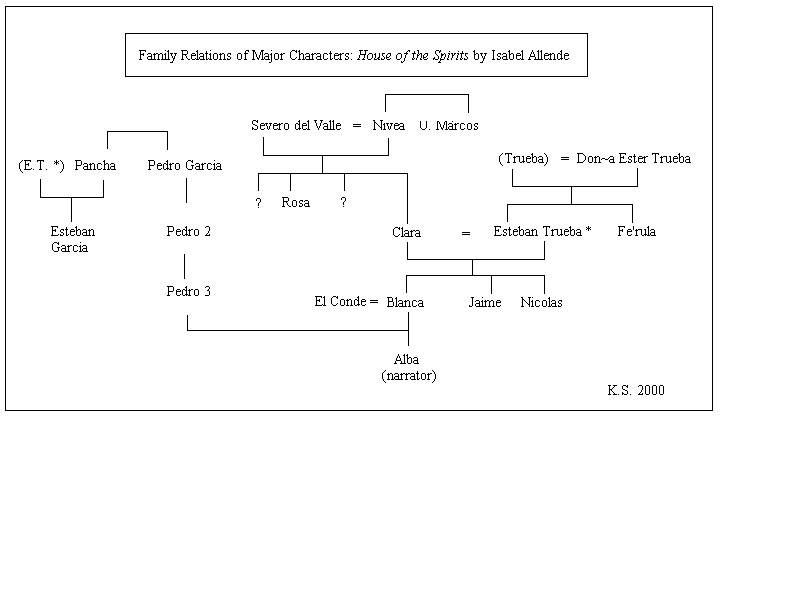
Isabel Allende, House of the Spirits
| Originally written in
Spanish, this contemporary novel (1983) should allow us to draw
together some of the issues discussed throughout the semester: what
are the relationships between different genres (lyric poem, short
story, novel, autobiography, essay)? What do authors' genre choices
call upon readers to do? Allende's novel plays by many of the rules
of realist fiction, but we will want to consider the moments when it
deviates into a "magical" space--and the effects of these moves on
readers and the novel's purposes.
As context, it is useful to know that Allende writes and publishes the novel in exile, almost a decade after the 1973 military coup that resulted in the assassination of the Chilean presidency and toppling of its socialist government. The novel works up to this historical event very gradually, focussing on a family history more than external politics. The imagined intersects with the real, the personal with the political, the lyrical with the journalistic. President Salvador Allende was the author's uncle. Approaching from this context, the fantastically imagined scenes of beauty (as well as those of violent power) invite us to relate the acts of memory (writing, reading, child raising) and the attention to the family lineage inside the novel to the task of the actual writer managing her own survival through the production of a novel. As a woman constructing a strongly matriarchal lineage through the fiction, she may also be commenting on the exercise of power in the masculine political world. |
|
| Preliminary Reading Questions
(Chapters 1 - 5)
I: What events transpire in c1 to set up a fantastic atmosphere? How do the church, the character of an eccentric family, and the narrative perspective contribute to this atmosphere? What contrast is established with the interruption of Esteban Garcia's self-narration? How would you describe his background, purpose and character? II: What perspective are we invited to take towards the resurrection of "The Three Marias" in c2? And towards Esteban's motives, ethics, behavior? Does the novel take up his worldview? III: What are some of the characteristics that distinguish the child Clara in C3? How does her remarkable upbringing shape her and what attitude does the novel take towards it? How does this contrast with Trueba's childhood home? How does Esteban hope to win over Clara? IV: What different attitudes towards the land and management of the hacienda surface in C4? What premonition is tragically fulfilled? What produces tensions between Ferula and Esteban? What further insights do we have into the lives of others at Tres Marias?
|
